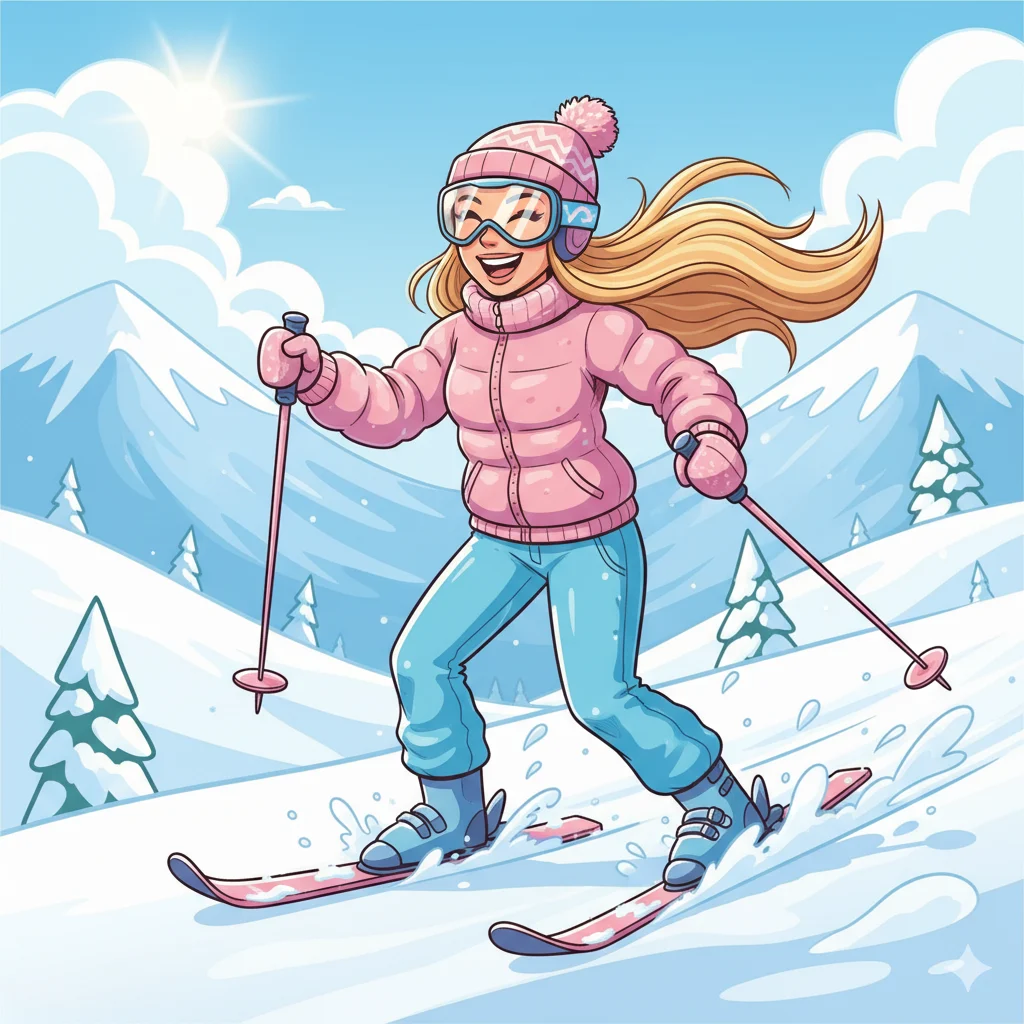In the world of modern slang, words like snow bunny pop up everywhere—from social media posts to online chats, gaming communities, and even dating apps. But what does “snow bunny” actually mean?
Understanding slang is crucial today. It helps you communicate naturally, avoid misunderstandings, and even connect better in social and professional settings. Whether you’re texting friends, browsing Instagram, or navigating Tinder, knowing what a term implies can save you from awkward situations.
This article dives deep into the meaning, history, usage, and nuances of “snow bunny.” By the end, you’ll know how to recognize the term, use it correctly, and respond appropriately in any context.
Definition & Meaning
The slang term “snow bunny” typically refers to:
- A woman who enjoys winter sports like skiing or snowboarding.
- Someone who is often seen in snowy settings, sometimes with a playful or flirtatious connotation.
It’s important to note that while the term often refers to physical presence in snowy locations, it can also be used in online conversations or social media captions to describe someone’s affinity for winter activities.
Example Dialogue:
Alex: “Did you see that snow bunny on the slopes today?”
Jordan: “Yeah! She’s really good at skiing and super friendly.”
Key Points:
- Usually refers to a woman.
- Associated with winter sports, snowy vacations, or ski resorts.
- Can carry playful, flirtatious undertones depending on context.
LSI Keywords: snow bunny definition, snow bunny slang meaning, snow bunny texting, snow bunny online, snow bunny dating
Background & History
The term “snow bunny” has its roots in North American ski culture. Ski resorts became hubs for winter sports enthusiasts, particularly young women who frequently visited or excelled in skiing or snowboarding. These women were affectionately called snow bunnies.
Evolution Over Time
- 1980s–1990s: Primarily descriptive, referring to women who loved winter sports.
- 2000s: Gained playful, flirtatious undertones, appearing in online chats and forums.
- Today: Used widely across social media, dating apps, and online gaming communities, often referencing both interest in snow sports and attractiveness.
The term has evolved from a literal descriptor to a cultural slang that conveys lifestyle, personality, and sometimes flirtation.
Pro Tip: In modern usage, context is crucial. In professional settings, calling someone a “snow bunny” is inappropriate.
Usage in Various Contexts
Texting
Sophie: “Who’s joining the slopes this weekend?”
Emma: “Count me in! Can’t wait to see all the snow bunnies!”
Social Media
- Instagram Caption: “Living my best snow bunny life ❄️⛷️ #skiing #snowbunny”
- Twitter Mention: “Met a snow bunny on the gondola, totally cute!”
Gaming Communities
In winter-themed games, players may refer to avatars with snowy outfits as snow bunnies.
Casual Conversations
Ryan: “She’s a total snow bunny, always at the lodge.”
Mike: “Yep, knows all the best slopes!”
Tip: Using the term casually is fine among friends, but always read the context before using it in a new community.
Common Misconceptions & Clarifications
While often harmless, snow bunny can be misunderstood.
Misconceptions:
- Only about appearance: Not necessarily; it primarily describes interest in snowy activities.
- Offensive: Usually playful; offensive use depends on tone and context.
Dialogue Example:
Alex: “Is calling her a snow bunny rude?”
Jordan: “Not really, as long as it’s friendly.”
Key Tip: Always consider tone, audience, and context before using slang.
Similar Terms & Alternatives
| Term | Meaning/Use Case | Notes |
|---|---|---|
| Beach Bunny | Loves beach vacations/surfing | Summer equivalent of snow bunny |
| Gym Bunny | Regular gym-goer | Focused on fitness lifestyle |
| Valley Girl | Trendy girl from a specific region | Cultural stereotype reference |
| Mountain Goat | Skilled skier/hiker | Focuses on talent, not looks |
These terms are similar in structure and style, describing a person’s hobby or lifestyle.
How to Respond to This Term
Your response depends on the context and your relationship with the speaker.
- Casual:
“Yep, that’s me! Can’t resist the slopes ❄️”
- Funny:
“Snow bunny? More like snow yeti on my first run 😂”
- Professional/Neutral:
“I enjoy winter sports, thanks for asking.”
- Privacy-Conscious:
“I prefer not to use nicknames, but I like skiing.”
Regional or Cultural Differences
- North America: Most common, especially in ski resorts and social media.
- Europe: Recognized by English speakers, sometimes replaced by local nicknames.
- Asia: Mostly used among tourists or in international resorts.
- Latin America: Limited usage, primarily in ski communities.
Tip: Understanding cultural context helps prevent misunderstandings.
Comparison with Similar Terms
| Term | Main Context | Connotation | Notes |
|---|---|---|---|
| Snow Bunny | Winter sports, flirting | Playful/flirtatious | North America |
| Beach Bunny | Beach/summer | Casual/fun | Summer equivalent |
| Gym Bunny | Fitness/gym | Motivated | Lifestyle-focused |
| Mountain Goat | Skiing/hiking | Skilled/athletic | Emphasizes ability, not looks |
Usage in Online Communities & Dating Apps
On Tinder, Bumble, or Twitter, snow bunny is often used to:
- Highlight love for winter sports in profiles.
- Playfully flirt with someone attractive on ski trips.
- Refer to winter-themed avatars in gaming communities.
Tips:
- Use the term playfully; avoid oversexualizing.
- Match tone and audience to ensure clarity.
Hidden or Offensive Meanings
Though mostly harmless, snow bunny can be sexualized in certain communities. Always consider:
- Tone: Friendly vs. flirtatious.
- Audience: Friends vs. professional contacts.
- Context: Casual chat vs. public post.
Tip: Avoid using the term in work or formal situations.
Suitability for Professional Communication
- Not suitable for formal or professional settings.
- Use alternatives like:
- “Winter sports enthusiast”
- “Skiing hobbyist”
- “Loves snowy vacations”
Example:
Instead of “She’s a snow bunny,” say, “She enjoys skiing and winter sports.”
FAQs (Schema-Ready)
Q1: Can snow bunny refer to men?
A: Rarely; primarily used for women, though context may allow flexibility.
Q2: Is snow bunny offensive?
A: Generally not, but tone and context matter.
Q3: Where is snow bunny most popular?
A: North American ski resorts, online dating platforms, and social media.
Q4: Can I use snow bunny professionally?
A: Not recommended; use neutral alternatives like “skiing enthusiast.”
Q5: What are similar terms?
A: Beach bunny, gym bunny, mountain goat, valley girl.
Q6: Does snow bunny have flirtatious connotations?
A: Sometimes, especially on dating apps or online chats.
Q7: Is snow bunny still relevant today?
A: Yes, mainly among younger audiences and in winter sports contexts.
Conclusion
The term snow bunny is a playful, versatile slang word used to describe women who love snowy activities, winter sports, and winter vacations. Understanding this term helps you communicate naturally, avoid misunderstandings, and even respond confidently in texting, social media, gaming, or dating apps.
Remember: context, tone, and audience matter. In casual or online settings, snow bunny is fun and friendly. In professional or formal communication, opt for neutral alternatives like “skiing enthusiast”.
Now, the next time someone calls someone a snow bunny, you’ll know exactly what it means—and how to respond appropriately.



